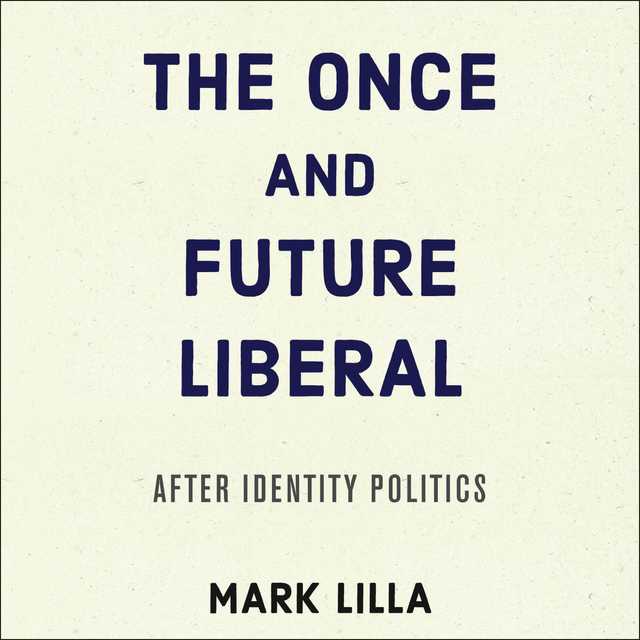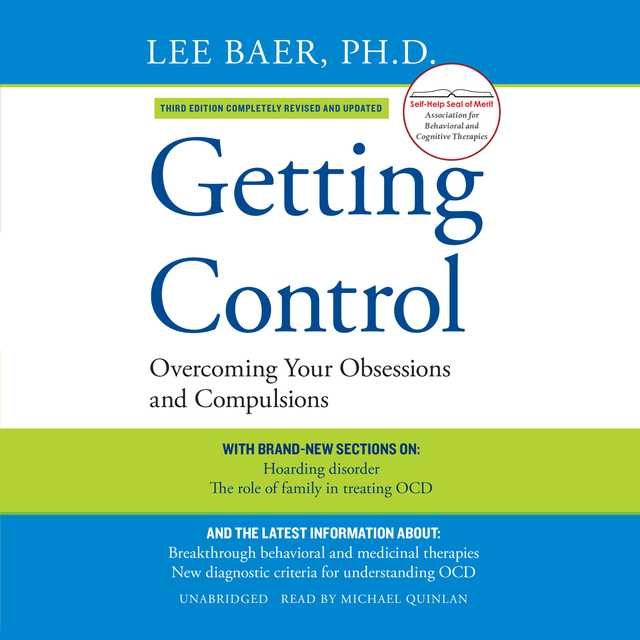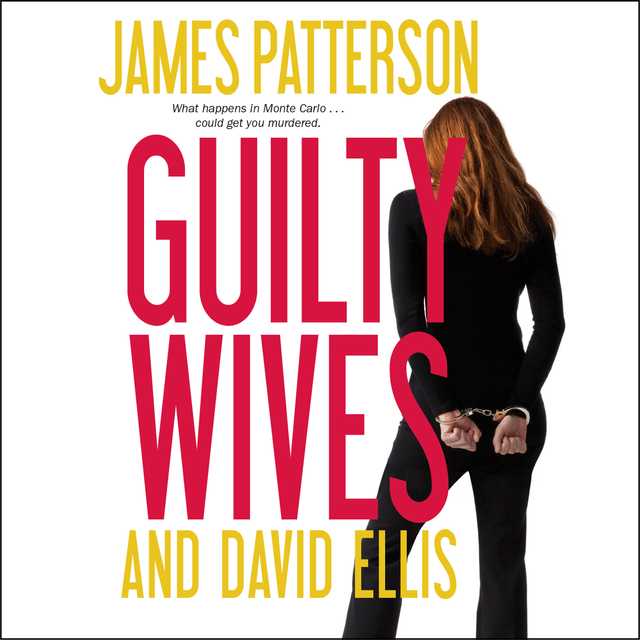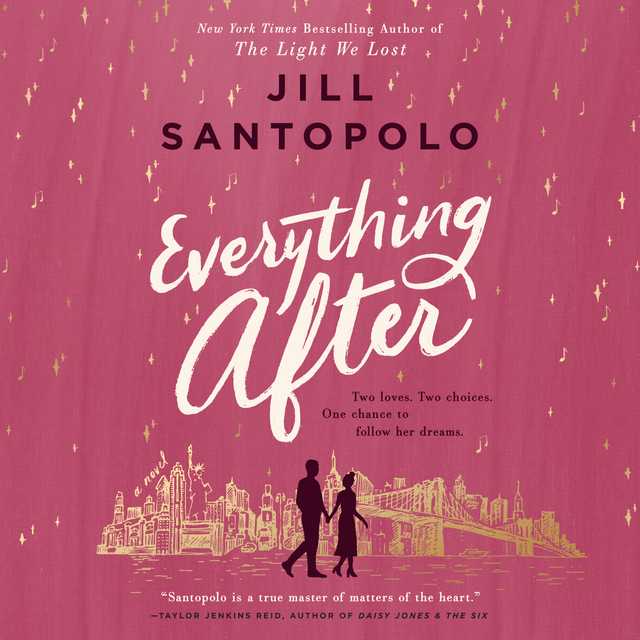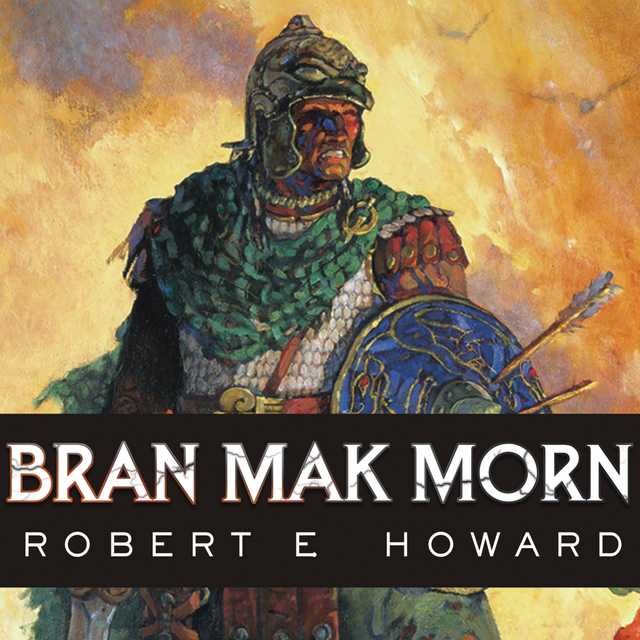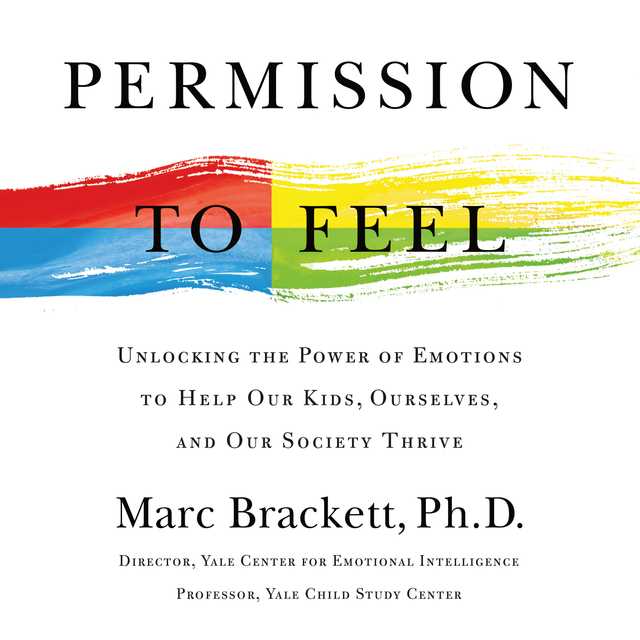The Once and Future Liberal Audiobook Summary
From one of the most internationally admired political thinkers, a controversial polemic on the failures of identity politics and what comes next for the left — in America and beyond.
Following the shocking results of the US election of 2016, public intellectuals across the globe offered theories and explanations, but few were met with such vitriol, panic, and debate as Mark Lilla’s. The Once and Future Liberal is a passionate plea to liberals to turn from the divisive politics of identity and develop a vision of the future that can persuade all citizens that they share a common destiny.
Driven by a sincere desire to protect society’s most vulnerable, the left has unwittingly balkanized the electorate, encouraged self-absorption rather than solidarity, and invested its energies in social movements rather than party politics. Identity-focused individualism has insidiously conspired with amoral economic individualism to shape an electorate with little sense of a shared future and near-contempt for the idea of the common good.
Now is the time to re-build a sense of common feeling and purpose, and a sense of duty to one another. A fiercely argued, important book, enlivened by acerbic wit and erudition, The Once and Future Liberal is essential listening for our times.
Other Top Audiobooks
The Once and Future Liberal Audiobook Narrator
Charles Constant is the narrator of The Once and Future Liberal audiobook that was written by Mark Lilla
Mark Lilla is Professor of the Humanities at Columbia University and a prizewinning essayist for the New York Review of Books and other publications worldwide. His books include The Shipwrecked Mind: On Political Reaction; The Stillborn God: Religion, Politics, and the Modern West; and The Reckless Mind: Intellectuals in Politics. He lives in Brooklyn, New York.
About the Author(s) of The Once and Future Liberal
Mark Lilla is the author of The Once and Future Liberal
More From the Same
- Author : Mark Lilla
- The Shipwrecked Mind
- Publisher : HarperAudio
- Abraham
- American Gods [TV Tie-In]
- Dead Ringer
- House of Sand and Fog
- Prey
The Once and Future Liberal Full Details
| Narrator | Charles Constant |
| Length | 2 hours 49 minutes |
| Author | Mark Lilla |
| Category | |
| Publisher | HarperAudio |
| Release date | August 29, 2017 |
| ISBN | 9780062843357 |
Subjects
The publisher of the The Once and Future Liberal is HarperAudio. includes the following subjects: The BISAC Subject Code is 21st Century, History, United States
Additional info
The publisher of the The Once and Future Liberal is HarperAudio. The imprint is HarperAudio. It is supplied by HarperAudio. The ISBN-13 is 9780062843357.
Global Availability
This book is only available in the United States.
Goodreads Reviews
Laura
August 17, 2017
A slim incendiary volume that expands upon Lilla's infamous November 2016 NYTimes op-ed, "The End of Identity Liberalism." It may be impossible to read this book neutrally -- and, as a liberal historian deeply disenchanted with the American Left, Lilla certainly writes with the all fervor of a Calvinist preacher trying to save the damned. And it is easy to critique Lilla's glibly summarized history of the past 80 years of American politics. Still, this book is a fascinating read with some critical content to engage with, particularly for those with a liberal bent.--Lilla posits two great American "dispensations": one liberal "Roosevelt Dispensation" covering the New Deal up until the late 60s and declining into the 70s, and one conservative "Reagan Dispensation" that continues to mark the American moment. The former has the hallmarks of engaged citizenship -- Lilla harkens often back to the "we" of FDR and JFK -- while the latter pronounced a new orthodoxy focused on hyperindividualism, capitalism, and a dismantling of the state. While critics (notably Beverly Gage at NYT, who likely took a hatchet to this book) can easily point out the missed nuances in summarizing these two movements, Lilla effectively draws the contrast in a way that can be discussed over the dinner table. --The book deftly contrasts 60s era protest with today's "Facebook slactivism." Essentially, Lilla argues that the 60s era was focused outside the self ("Young people who were incensed by the denial of voting rights out there, the Vietnam War out there, nuclear proliferation out there, capitalism out there, colonialism out there"), while today's generation is far more focused on self-discovery of the inner self, and trying to make the outside world reflect a self-referential orthodoxy of identity. Lilla also traces some of this shift in part due to the political education of liberal America moving from factory shop floors to America's (elite) universities. Lilla goes for style over substance here at times -- claiming liberals need more mayors and fewer marchers, for instance. I would have preferred a much more in-depth treatment of the topic of activism of past and present, but the topic hangs together with Lilla's overall theme: that liberals today have become too focused on narrow identity politics to be effective as a national party (to say nothing of state and local elections.)[An interesting aside: Lilla actually opens an interesting line of argument about Marxism, which he admires (at least narrowly) for lifting laborers, farmers, and the like out of their narrow concerns and into the "we" of class consciousness. He later posits that it may be progressives such as Bernie Sanders who are more likely to move liberals beyond the narrow concerns of identity groups. I wish he had developed this more, given there are fascinating implications for a new strong-left-of-center politics.]--Lilla is at his best when critiquing political romanticism, purity testing and "atonement", fractional in-fighting, and "evangelism" of the Left and reminding the reader of the only true goal: getting officials elected at all levels of government. The most forceful line of the entire book can be summarized thus: "Identity liberalism has ceased being a political project and has morphed into an evangelical one. The difference is this: evangelism is about speaking truth to power. Politics is about seizing power to defend the truth." He goes further, even suggesting that in being in thrall to identity politics is merely the Left's version of Reaganism (I can surely imagine many liberal-leaning heads exploding at the thought.) It's a persuasive line of argument, albeit one that leaves Lilla open to criticism for not engaging the Right's own identity politics whatsoever. I'll take it that was not his aim for the book.--Lilla makes some pithy claims that, by nature of his position, needed more support than he granted in "The Once and Future Liberal." Most seriously, he outright dismisses BLM as a productive social movement. I would think that a liberal scholar would at least critically analyze BLM, if not outright sympathize with its aims. While supportive of 60s era progressive causes (Civil Rights Movement, first/second wave feminism), he finds no identity-based causes useful today. Why? Is that really the case? I expected more here.--Lilla continues to seek the answer to identity based politics (and its failures) in common purposes, citizenship, and institutions (and perhaps more "big tent" politics.) This argument is persuasive and evocative, but Lilla is long on style and short on tactical solutions. How should Democratic candidates respond to identity-based social movements like BLM? How do liberals balance the needs of the vulnerable minority groups (e.g. transgender people) against the common "we" -- particularly when the conservative Right is actively legislating against those minority groups? How far should liberals go to not alienate white moderates when research is demonstrating more white Americans are seeing racial equality politics as a "zero sum game?" Again, Lilla is silent. If you are seeking a book that parenthetically explains how we got to the current political moment of Trump and fractional identity politics, particularly on the Left -- and are willing to objectively seek content amid writing that often comes off as a jeremiad against the Left -- this book accomplishes that. If you're a young liberal looking to get motivated to a bigger purpose, this book may either incense you or inspire you (or both). If you're a conservative worried about what Trump's America presages for America -- this book is also an interesting (if unintentional) orthogonal read about the Right. All in all, I came away from this book deep in thought and ready to seek political action outside myself -- which I think was Lilla's goal.
Brad
August 28, 2021
THE ONCE AND FUTURE LIBERAL is a short polemic written for a politically liberal audience with the goal of reinvigorating the electoral prospects of the Democratic Party in the United States. ONCE AND FUTURE was written in response to Hillary Clinton's surprising loss last November. It is most decidedly not a book directed to a conservative audience. Yet, many of the reviews that one finds in GoodReads are from conservatives. Perhaps, even most of the reviews come from conservatives. This caused me to wonder that Lilla might be on to something to have stirred them up so. Now, after reading THE ONCE AND FUTURE LIBERAL, I conclude that, yes, he is on to something.ONCE AND FUTURE is very short. It is less of a book and more of a pamphlet, truth be told. I read it on an e-reader and it is less than 70 pages formatted for that medium. There is a limit to how much can be accomplished in such a short document, of course. Don’t expect the erudition of Lilla’s scholarly works. Don’t expect exhaustive research or comprehensive treatment of what ails liberalism in America currently. Instead, Lilla offers an argument sketched so broadly that there is little point in examining it closely. His thoughts on what went wrong with the Democratic Party in the last 50 years are not the interesting part anyway. Plus, if you have read the dust cover of the book, you already know that Lilla blames identity politics for the current fortunes of the Democrats. He compares the Democrats’ identity politics to the Republicans’ anti-government politics and concludes that they both have proven to be self-destructively individualistic leaving voters angry and grasping.In the last 15 pages of his book, Lilla gets down to business. He calls this a time for Democrats to “Reset”. He exhorts Democrats to revive and re-commit to the concept of citizenship as a way of re-invigorating Democratic politics. He wants to persuade us that a re-examination of what citizenship means offers great potential for a new vision of what our future as a nation can be. Lilla offers four lessons for the resetting of the Democratic Party. First, he urges Democrats to give priority to institutional politics over movement politics. That is, work inside government to achieve liberal goals. The obvious corollary to this is to do what it takes to win more elections at every level of government.Second, he wants Democrats to give priority to democratic persuasion over self-expression. This seems a swipe at the lattè elitism that infects liberal thinking from time to time. In Chicago, where I live, we refer to this as the “lake front liberal” problem. The ancient Greeks referred to it as demophobia. It’s a concern that must be refined further.Third, Lilla urges that Democrats give priority to citizenship over group or personal identity. Lilla demonstrates that identity politics has done much to undermine the Democratic Party with swing voters and centrists. I am not qualified to speak for Democrats, but Lilla has persuaded me that identity politics (group or personal) must be softened for the Democrats to reverse their fortunes. (Lilla also notes that minority identity politics can be argued to legitimize majority identity politics, a very dangerous thing. While the argument for pro-white legitimacy relies on a false equivalency, it has been persuasive in the past to those with fascist tendencies.) However, Lilla understands that some liberals correctly will see the abandonment of identity politics as a challenge to their pet projects. So, he warns us to expect some howling.Finally, Lilla urges that we emphasize civic education. First create citizens, then convince them to be Democrats, he reasons.It is this final thought that appeals most strongly to someone like me. ‘Let’s make citizens’ goes off in my head like the proverbial light bulb. Of course! Let's take Lilla at his word. Making citizens is not empty sloganeering. Lilla has me convinced that citizenship is the place to start. Let’s have a national conversation about citizenship. Extremists and disruptors on both sides, with their automatic negativity for our “goddam” government and simpletons' rhetorical “who needs it?”, will be at a disadvantage in that conversation. They might try to squash it. But that is all the more reason to make it happen. And we should thank Mark Lilla for pushing us in this direction.
Oleksandr
November 03, 2019
This is a non-fic critique of the current obsession of democrats with identity politics. It should be said that the author is a liberal and his points a bit Marxist, so it is not a denier or a right-winger, who tries to ‘protect’ a straight white man.His idea is that up until the 1960s, those active in liberal and progressive politics were drawn largely from the working class or farm communities. Now activists and leaders are formed almost exclusively in colleges and universities, as are members of the mainly liberal professions of law, journalism, and education. Liberal political education now takes place, if it takes place at all, on campuses that are largely detached socially and geographically from the rest of the country. The openness and attempts at collective actions, “we the citizens” are largely replaced by “me and my identity”, so that JFK’s challenge, What can I do for my country?—which had inspired the early sixties generation—became unintelligible. The only meaningful question became a deeply personal one: what does my country owe me by virtue of my identity?Classroom conversations that once might have begun, I think A, and here is my argument, now often take the form, Speaking as an X…. What replaces argument is taboo. Only those with an approved identity status are, like shamans, allowed to speak on certain matters. Particular groups are given temporary totemic significance. Scapegoats—today conservative political speakers—are duly designated and run off campus in a purging ritual.He doesn’t deny that identity is important, but that it narrows the view. As he (I guess correctly) notes, Trump defeated both of America’s major political parties, starting with the one he nominally belonged to. Hew was saying that free labor markets and trade agreements were destroying more wealth than they created unemployed workers, he didn’t adhered to Republicans “free trade, free movement of capital and labor”. His solution is to return to the fact that politics is compromise, that one has to interest other parties to join hem in developing a common good as citizens, as a group, to work in power, not just on marches. Identity liberalism banished the word we to the outer reaches of respectable political discourse. ‘As a good liberal you have learned not to do that with peasants in far-off lands; apply the lesson to Southern Pentecostals and gun owners in the mountain states. Just as you wouldn’t think of dismissing another culture’s beliefs as mere ignorance, don’t automatically attribute what you are hearing to the right-wing media machine (as loathsome and corrupting as it is).’ Democratic politics is about persuasion, not self-expression. Accept that you will never agree with people on everything—that’s to be expected in a democracy.And one piece to quote in full:Electoral politics is a little like fishing. When you fish you get up early in the morning and go to where the fish are—not to where you might wish them to be. You then drop bait into the water (bait being defined as something they want to eat, not as “healthy choices”). Once the fish realize they are hooked they may resist. Let them; loosen your line. Eventually they will calm down and you can slowly reel them in, careful not to provoke them unnecessarily. The identity liberals’ approach to fishing is to remain on shore, yelling at the fish about the historical wrongs visited on them by the sea, and the need for aquatic life to renounce its privilege. All in the hope that the fish will collectively confess their sins and swim to shore to be netted. If that is your approach to fishing, you had better become a vegan.
Jack
September 25, 2017
Fact: There are currently 34 Republican state Governors.Fact: There are currently 32 states in which Republicans control both houses of Congress (there's also weird ol' Nebraska, which has only one house of Congress... Republicans control that one, too, of course).Fact: There are Republican majorities in the U.S. House of Representatives and Senate.Fact: There is a Republican president in office. He's fucking insaneFact: There is a definite rightward slant to the U.S. Supreme Court, and to the nation's judiciary at large.Fact: Liberals cannot win fucking elections for shitMark Lilla has written a book that left-leaning people need to read, plain and simple. Most lefties will disagree with some of it-- a lot of us will disagree with a lot of it. Many of us will write it off based on a single poorly chosen word or phrase, like a fucking parody of the sort of easily offended Puritan liberal college-educated New Yorker Lilla criticizes all book long (I've already seen several people take umbrage with Lilla's use of the term "mau-mauing"... which might not have been a wise choice, on his part, but STILL, who cares... it's one phrase, gang). I have problems with Lilla's view, too. But the point of Lilla's book is that our problems with each other, as liberals, should not get in the way of crafting a vision for society that incorporates as many folks as possible under the umbrella of citizenship. Somewhere along the way, we alienated a lot of people in a lot of places. In Lilla's eyes, this doesn't mean Democratic ideals-- equality, racial justice, etc-- have lost their luster. It means that we've forgotten how to talk to people-- how to actually persuade people that our side is the one that cares, that our side is about bringing us all up, together.Most of the issues Lilla has with the modern left are rhetorical. We don't say "we." We emphasize the labels of race and gender and sexuality and play down our commonalties as Americans. We insist on our moral superiority and look at other views not as political opinions, but as evidence of irredeemable barbarity. But Lilla also addresses-- and attacks-- the persistent interest of liberals in protest and "movements" at the expense of campaigning, forming alliances, voting, etc-- i.e. the hard work of politics that pays off in winning elections. As Lilla says, it's not that marches and parades and energy and making signs aren't important. It's that, minus liberal governments, those things can never really attend to people's needs. Until liberals have real political power, they can never inspire real social gains. Obtaining that power is gonna require changes from all of us. It does not mean running away from our beautiful multicultural coalition... And it definitely doesn't mean going outside and shooting a deer in the fucking head, or whatever hillbilly field trip you wanna go on. But it might mean rethinking our language, our ways of framing debates, our methods of persuasion. And it absolutely means VOTING for NOT DONALD TRUMP, which DOESN'T MEAN VOTING FOR JILL STEIN AUGHHHH
Jim
September 08, 2017
Wow! Between this and "Fragile by Design - The Political Origins of Banking Crises & Scarce Design," by Charles W. Calomiris and Stephen H. Haber, it is hard to offer any defense of the performance of Baby Boomer progressives.What Lilla misses, in evaluating the rise of Trump, is the unwillingness of Baby Boomers, across the political spectrum, to share. He does capture what John Rawls was getting at with his Concept of an Overlapping Consensus.Trump is the apotheosis of Baby Boomer rule. Our consensus has always been that we would have great benefits (Social Security and Medicare) or ourselves and the elderly (protected by the Left), maintain a strong defense (bipartisan consensus), and not pay for it (tax increased blocked by the Right). The concomitant squeeze on discretionary spending has prevented any investment in the future (infrastructure, research, training, education, etc. -- after all, how would it benefit us during our entitled lives?) or any succoring to those left behind by (mostly) technology and (somewhat) globalization.Trump's ascendance is a direct consequence of that: he listened to those we ignored. The Left and the Right are equally culpable in his election. His policies are the apotheosis of Baby Boomer entitlement. Go Boomers!!I found this "brief but brilliant book" in:Opinions -- The Democrats should rethink their immigration absolutismBy Fareed Zakaria Opinion writer August 3https://www.washingtonpost.com/opinio...and in:"But as Mark Lilla points out in his essential new book, “The Once and Future Liberal,” many identity communities are not even real communities. They’re just a loose group of individuals, narcissistically exploring some trait in their self that others around them happen to share." Opinion | OP-ED COLUMNISTIn Praise of EquipoiseDavid Brooks SEPT. 1, 2017https://www.nytimes.com/2017/09/01/op..."The most important lesson is this: that for two generations America has been without a political vision of its destiny" (p. 99)."And the work doesn’t stop once legislation is passed. One must keep winning elections to defend the gains that social movements have contributed to" (p. 110)."As most historians agree, the unintended consequence was to marginalize the blue-collar unions and public officials who had been pillars of the party structure, and replace them with educated activists tied to single issues or to particular presidential campaigns" (p. 112)."Black Lives Matter is a textbook example of how not to build solidarity" (p. 129)."Whatever might be said about the legitimate concerns of Trump votets, the have no excuse for voting for him" (p. 133).
Jason
September 15, 2020
If Al Gore had not already taken the title, Mark Lilla could have easily called his book 'An Inconvenient Truth.' 'The Once and Future Liberal' is a damning indictment of modern liberalism's infatuation with identity politics and its compulsion to segment and hyphenate Americans.Lilla, himself a liberal and academic, shows how liberalism has veered so far off track and the far-reaching consequences this has had on American politics. The author lays out simple remedies for a return to relevance and viability for American liberalism. Unfortunately, Lilla's criticisms will likely fall on deaf ears or be drowned out in a chorus of protests towards another "entitled white male."'The Once and Future Liberal' is one of the most important political books I've read in years. Any one who remotely cares about the course of American politics should read it.
Antti
September 20, 2019
There is a long and proud tradition among the leftists to lament how the Left has lost it's course and purpose, and how the leftist parties need to reinvent themselves for the new decade/century/millennium. Mark Lilla carries this tradition forward with his short analysis about the failings of the Democrats in the United States for the last four decades.According to Lilla, the Roosevelt years were the heyday of Democrats and liberals in general. Back then, the liberals were the ones with a vision. But as the 20th century moved on and the 60's and the 70's happened, the Rooseveltian vision started to be hopelessly out of touch of the new realities. The USA in the 1970's wa a coutry without a vision.Enter Reagan, who galvanised the Right with his vision of "Morning in America". This was an optimistic, individualistic and at it's root anti-political message. The time for Big Government was over; as Thatcher said, "there is no such thing as society, only individual men and women".The Democrats, who never miss an opportunity to miss an opportunity, didn't react with a positive, pro-political message of their own. Instead they retreated to identity politics, where "personal was political". Instead of creating a new vision for America, the liberals focused on dividing the nation into smaller and smaller segments and urging people to focus on the problems of their particular identity group. As Lilla said succintly, identity politics is Reaganism for leftists.But now the Reagan era is over. Donald Trump is the POTUS, and he surely doesn't have any vision of his own. This is an opportunity for the left, but Lilla is concerned the liberals spend all their time opposing Trump without creating a positive vision of their own.His proposal is to once more focus on the citizenship. A black lesbian lawyer from New York and a out-of-work middle-aged white former car industy worker from Detroit might not have very much in common - except the fact that they are both citizens of the same nation. And this is the message the left should empathize: we are all in the same boat; if one citizen is treated badly, what's protecting other citizens from the same fate later down the road?This was an entertaining book. The audiobook was less than three hours long, so it was fast absorbed. I'm not an American, so I don't identify with the particular issues Lilla is discussing, but the sorry state of the Left is not unique to the USA. Indeed, the European leftists have made much of the same mistakes Lilla is attributing to Democrats: too much focus on the divisive identity politics, too much reactions to right-wing advances and not enough proactive programs of their own. Therefore I could find lots of substance in the book even as a non-American.
Alex
August 24, 2017
A bracing repudiation by a centrist liberal of the identity politics that have engulfed the political left. Mark Lilla argues that activist liberalism's obsession with identity (women, black, LGBTQ, etc...) has handicapped and hindered the Democrats' ability to offer a broad-range vision of the common good for Americans. Lilla uses religious vocabulary, speaking of the "Roosevelt Dispensation" that stretched from the 1930s-1960s and that focused on New Deal initiatives that bound Americans together, followed by the "Reagan Dispensation" that promoted rugged self-reliance and a libertarian attitude that has now exhausted itself. America is awaiting a new dispensation and with the Trump "administration" flailing wildly amidst faux-pas after tweeted faux-pas, the political left seem in a prime position to offer it, as long as they can transcend tribal identities and be more open to dialogue and compromise with those who differ from them on hot-button issues. Though I would not consider myself a liberal, I do share Lilla's belief that government is often necessary to provide programs like health care and I think Lilla writes fairly (he admits that if identity is largely about social construction, then Rachel Dolezal and her supporters have a point in claiming that she is black). As other reviewers have already commented, this book has strong "explanatory power" for our cultural moment and how we got from the 1960s to the present.
Sagar
September 04, 2017
An immensely important and challenging work.Mark Lilla expands upon the argument he first presented last November in his New York Times Op-Ed, "The End of Identity Liberalism." He argues that by focusing narcissistically upon identity politics (gay rights, BLM, women's rights, etc) to the exclusion of what binds us together as Americans, liberals created a vacuum which conservatives have deftly exploited by claiming they alone speak for the people. Lilla, whose earlier work "The Shipwrecked Mind: On Political Reaction," deftly navigates the historical and psychological forces which animate the conservative mind, urgently writes that unless liberals make a strong course correction away from identity, they will continue to suffer defeat at the polling booth. His case fits generally into the literary consensus emerging in other popular works like "Hillbilly Elegy," "White Trash," and "Strangers in Their Own Land": rural, working-class Americans have been abandoned by urban liberals who are more focused on winning rights for narrowly-defined identity groups than the well-being of vast stretches of white, impoverished America. That these regions of the country cast their ballots for Trump should therefore come as no surprise, given what Lilla terms "The Abidication" of progressives.As with Arthur M. Schlesinger, Jr's 1991 publication "The Disuniting of America: Reflections on a Multicultural Society," Lilla seems to suggest this embrace of identity on the left was purely elective. Faced with the overwhelming evidence of, say, police brutality toward African-American motorists documented over the past several years, what would he have people do? Forget organizing movements like Black Lives Matter and focus instead on running for the local water board? Faced with the massive pay disparities between male and female wage earners, should we ratchet-down the invective and instead try to convince our neighbor over the fence that women should receive the same pay as men? Of course, mass protests and shouted slogans alone cannot affect political change. In the end, people must participate in the government they seek to alter. But Lilla presents this as a zero-sum game: either protest, or get serious. One can do both.Take his argument that the radical change in public attitudes toward gays occurred not because of gay marches and slogans, but because family members began coming out to each other. Once people realized someone they knew or loved was gay, their attitude changed. This ignores the role the gay identity movement played in helping many gays and lesbians develop the self-confidence to come out in the first place. I witnessed this first-hand in one of my college friends. Without his prior involvement in gay pride parades and identity activities, he would never have come out to his parents.Sometimes, the identity movement can trigger the heartfelt conversations which change attitudes.Lilla also ignores the fact that reactionary forces today are largely impervious to reasonable argument. There is a deep sense among progressives that any effort spent trying to change a conservative's mind is wasted. Indeed, in a so-called post-truth era, people simply choose whatever "facts" appeal to their already-held biases. Lilla's picture of America is a Norman Rockwell painting when it more closely resembles a photo of Charlottesville.Yet, for all this, I worry he may be correct. That if Democrats want to win large reaches of the country, they will have to tone-down their support for blacks, women, gays, and other ostracized groups. In the end, it will have less to do with de-emphasizing some nebulous concept of "identity," and everything to do with appeasing white conservative prejudice. And one needn't go very far back to see a similar capitulation-- just look at Bill Clinton's shift to the right in 1996. We can thank Democrats for the prison-industrial complex, Government Sachs, and the characterization of black men as "superpredators."Faced with this possibility, is it not fortunate that groups like BLM exist to continue holding liberals' feet to the fire, forcing them to declare what they stand for?"The Once and Future Liberal" is required reading for anyone concerned about our country today and how to take it back.
Carolyn
September 14, 2017
Lilla's thesis is that rather than developing a "fresh political vision of the country's shared destiny....liberals threw themselves into the movement politics of...racial, gender and sexual identity...losing a sense of what we share as citizens and what binds us as a nation." The "increasingly narrow and exclusionary self-definition...turns young people back onto themselves, rather than...outward toward the wider world." Add to this the thought police and political correctness and we have "a new, and very revealing, locution [that] has drifted from our universities into the media mainstream: Speaking as an X … This is not an anodyne phrase. It tells the listener that I am speaking from a privileged position on this matter. It sets up a wall against questions, which by definition come from a non-X perspective. And it turns the encounter into a power relation: The winner of the argument will be whoever has invoked the morally superior identity and expressed the most outrage at being questioned."So classroom conversations that once might have begun, I think A, and here is my argument, now take the form, Speaking as an X, I am offended that you claim B. This makes perfect sense if you believe that identity determines everything. It means that there is no impartial space for dialogue. What replaces argument, then, is taboo." Moreover, with continual demands to attend to movement and group identity history in curricula, it's important to note that "Neither Elizabeth Cady Stanton (who studied Greek) nor Martin Luther King Jr. (who studied Christian theology) nor Angela Davis (who studied Western philosophy) received an identity-based education. And it is difficult to imagine them becoming who they became had they been cursed with one. The fervor of their rebellion demonstrated the degree to which their education had widened their horizons and developed in them a feeling of democratic solidarity rare in America today."As it would stray from his thesis, Lilla may be forgiven for not including a mention of the erosion of civil liberties by these same illiberal factions. Pew and Gallup surveys indicate that young people favor curtailing freedom of speech and freedom of religion, among others. Coupled with the other phenomena, there is justifiable cause for concern about the future of our nation. We need some serious civics education about the founding principles of the USA. If you have read Lilla's articles on identity politics in The New York Times, The Wall Street Journal, and The Chronicle of Higher Education, you need not read this book, as complete passages are shared and no new ideas are introduced. If you have not read them, either do so or get this book.
Tristan
March 02, 2018
This book is great and mercifully short. Basically, Lilla argues that identity politics is "Reaganism for lefties" because it encourages atomization and instils a disregard for traditional politics. That is, identity politics fractures the left-wing solidarity that's needed to win elections. And, as Lilla states, only by winning elections can progressives hope to maintain the gains of the past 50 years while striving for new ones. Lilla is a man who despises Donald Trump (he explicitly says that Trump supporters "have no excuse for voting for him"), and offers a solid diagnosis of problems with the left that played a part in Trump's election. Therefore, it's unfortunate that Lilla's book has been pilloried in left-wing publications (eg. https://www.nytimes.com/2017/08/15/bo...). Lilla says it well, so I'll throw in a few quotes for potential readers. (And as I said, this book is short - it is maybe a 3 hour read, so you really have no excuse for skipping it.)"If the steady advance of a radicalized Republican Party ... should teach liberals anything, it is the absolute priority of winning elections today. Given the Republicans' rage for destruction, it is the only way to guarantee that newly won protections for African-Americans, other minorities, women, and gay Americans remain in place. Workshops and university seminars will not do it. Online mobilizing and flash mobs will not do it. Protesting, acting up, and acting out will not do it.""What's extraordinary - and appalling - about the past four decades of our history is that our politics has been dominated by two ideologies that encourage and even celebrate the unmaking of citizens. On the right, an ideology that questions the existence of a common good and denies our obligations to help fellow citizens, through government action if necessary. On the left, an ideology institutionalized in colleges and universities that fetishizes our individual and group attachments, applauds self-absorption, and casts a shadow of suspicion over any invocation of a universal democratic we.""Equal protection under the law is not a hard principle to convince Americans of. The difficulty comes in persuading them that it has been violated in particular cases, and of the need to redress the wrong. Prejudice and indifference run deep. Education, social reform, and political action can persuade some. But most people will not feel the sufferings of others unless they feel, even in an abstract way, that it could have been me or someone close to me."
Dan
October 07, 2017
This short, cogent, and at times provocative examination of several issues in leftist identity politics is the sort of thing that should have been circulated decades ago. Being more of an Independent I can't totally understand how much of this discussion could be surprising or revolutionary for someone of a leftist disposition but if it effects some much needed change is how their discourse and campaigns are run then I'm all for it. I don't want my review to seem longer than the work itself (just over 140 very small pages) so to share some of his more salient points:"Identity is not the future of the left. It is not a force hostile to neoliberalism. Identity is Reaganism for lefties."After explaining how fishing normally works - "The identity liberals' approach to fishing is to remain on shore, yelling at the fish about the historical wrongs visited on them by the sea, and the need for aquatic life to renounce its privilege. All in the hope that the fish will collectively confess their sins and swim to shore to be netted. If that is your approach to fishing, you had better become a vegan.""In democratic politics it is suicidal to set the bar for agreement higher than necessary for winning adherents and elections."Perhaps my favorite issue discussed is the increasing need for a revitalization of the concept of shared citizenry. Frequently that is a term only brought up during stupid debates as to who is a citizen and who isn't or at minimum just generates very old-fashioned notions of civics classes and such. The focus here is on what it means to participate in the governing of a country as one of its citizens, a membership we all share as Americans. That being, maintaining your awareness of fundamental flaws in our system based on varying identities but functioning as a unified political citizenry to make the case for the development of political solutions that work to benefit as many communities as possible, all the while not allowing the fetishizing of every bit of individuality to divide what could otherwise be an effective coalition working towards a shared objective. You may be thinking that is what politicians have been talking about for a long time, and sometimes they do in one or two speeches, however their actions, policies, and the environment on campuses and social media doesn't even come close to this concept. A quick and well-written manifesto that probably would have had a much greater impact during the latter part of the, "Reagan Dispensation," for the American left.
Conor
April 26, 2018
This is the Mark Lilla book I was hoping for when I read The Shipwrecked Mind: On Political Reaction. It discusses the rhetorics of the era of FDR, when we worked together to build this country, and the era of Ronald Reagan, when the individual was the hero. Lilla seems to think we are at the cusp, perhaps in a palate-cleansing period, and won't say what he thinks is coming next. He certainly loathes Trump and understands him to be dangerous. But he warns us away from identity politics. It is not a winning strategy, we are told. We can be as woke as we like, but a predicate assumption to supporting any political position is the power to implement it, and on this front the Left in this country has been woefully, if not irretrievably outflanked.I'm not sure I join Lilla in his mocking denunciation of "social justice warriors," and I wonder how he proposes that black people bring light to their brutalization by the state without saying something akin to "Black Lives Matter," which Lilla derides as hopelessly counterproductive. But I do think the American Left needs to seriously rethink its rhetoric and strategy if it ever wants to regain power in this country. Sadly, Lilla doesn't really provide us with any answers--even the class-based call for unity he derides. Still, I think he's onto something that I've been seeing in the sharpest commentaries on the rise of the alt-right, white nationalism, and American anomie. Things are getting desperate and this could be progressivism's last best shot.
Caleb
June 19, 2018
My biggest fear in reading a book whose very title criticized identity politics was that it would be nothing more than someone saying they’re tired of hearing marginalized communities whine. Luckily, this book wasn’t that at all. Its definition of what identity politics is was much broader than I’d ever thought, and was a very thoughtful critique of the left’s cultural drift towards a very inward, self-focused politics, in a way that all too often doesn’t leave room for an understanding of how liberalism can benefit everyone and work for the common good. As Lilla puts it, it is an attitude that has shifted away from What can you do for your country to What does my country owe me by virtue of my identity? The book is very short, and it is such a fascinating topic that I actually wish it had been longer and more researched. There is no sourcing at all, and very few pieces of data or evidence, so it is ultimately really just one (clearly very intelligent) person’s opinion. But it was well-written and well-argued, and provided much food for thought.
Alan
January 02, 2020
Should be required reading in high school civics classes (if schools still have them) and at universities. A frustrated liberal of the progressive mold conducts a forensic study of liberalism's current self-inflicted woes and offers his suggested remedies to be considered if liberals want to have any future impact on this country. Intelligent and unsparing, this short book is one of the best political studies that I have read in ages. Spoiler alert: the author values solidarity as well as justice, and believes that with civil rights come civic duties to our fellow Americans. I find it heartening to discover that the characteristics I find most irritating about the democratic left are finally being analyzed and discussed by the democratic left. One of my favorite quotes from the book (there are many): "Yet it is an iron law in democracies that anything achieved through movement politics can be undone through institutional politics. The reverse is not the case...One must keep winning elections to defend the gains that social movements have contributed to." The author argues that winning elections must be a priority (rallies and protests may sway public opinion, which is important, or they may cause a backlash, but regardless, they will never enshrine and institutionalize progressive change like gaining control of political offices and the bureaucracy will). Prioritizing court victories over legislative victories may have been expedient for liberal causes a few decades ago, but it has also resulted in a public relations nightmare for liberalism. Liberals must articulate a vision that unites and energizes the country. Lately they've very effectively been doing quite the opposite. The author's prescriptions for a path forward are both logical and sensible, and I hope they will be heeded.
Mars
September 05, 2017
The general message was well-worth hearing although some of the points regarding the Roosevelt/Reagan dispositions were difficult to understand. I still gave it a four as I felt the points the author was trying to make were well worth listening to. As an individual who identifies as 'liberal'(more or less in the classical sense) who leans center-left, it's been a disappointing experience to see those on the left 'double-down' on identity politics. Engagement of diverse viewpoints has automatically been attributed as consorting with the enemy or as racist/sexist from the get-go. As outrage reigns, the nuances and complexities of today's issues left behind and friends/allies become alienated by shaming and virtue-signaling. The author theorizes how we came to be here and argues that, while some of the concerns are certainly legitimate, the means used to address them are tearing us apart as a people. It concludes with a few ideas on how the identity politics can be addressed. Worth a read, though to truly get the most out of it, I'd pair it with one of the Modern Political Thought classes from the Great Courses to give the reader a broader perspective on the principles of liberalism and conservatism. Overall, an 'ok' read.
Frequently asked questions
Listening to audiobooks not only easy, it is also very convenient. You can listen to audiobooks on almost every device. From your laptop to your smart phone or even a smart speaker like Apple HomePod or even Alexa. Here’s how you can get started listening to audiobooks.
- 1. Download your favorite audiobook app such as Speechify.
- 2. Sign up for an account.
- 3. Browse the library for the best audiobooks and select the first one for free
- 4. Download the audiobook file to your device
- 5. Open the Speechify audiobook app and select the audiobook you want to listen to.
- 6. Adjust the playback speed and other settings to your preference.
- 7. Press play and enjoy!
While you can listen to the bestsellers on almost any device, and preferences may vary, generally smart phones are offer the most convenience factor. You could be working out, grocery shopping, or even watching your dog in the dog park on a Saturday morning.
However, most audiobook apps work across multiple devices so you can pick up that riveting new Stephen King book you started at the dog park, back on your laptop when you get back home.
Speechify is one of the best apps for audiobooks. The pricing structure is the most competitive in the market and the app is easy to use. It features the best sellers and award winning authors. Listen to your favorite books or discover new ones and listen to real voice actors read to you. Getting started is easy, the first book is free.
Research showcasing the brain health benefits of reading on a regular basis is wide-ranging and undeniable. However, research comparing the benefits of reading vs listening is much more sparse. According to professor of psychology and author Dr. Kristen Willeumier, though, there is good reason to believe that the reading experience provided by audiobooks offers many of the same brain benefits as reading a physical book.
Audiobooks are recordings of books that are read aloud by a professional voice actor. The recordings are typically available for purchase and download in digital formats such as MP3, WMA, or AAC. They can also be streamed from online services like Speechify, Audible, AppleBooks, or Spotify.
You simply download the app onto your smart phone, create your account, and in Speechify, you can choose your first book, from our vast library of best-sellers and classics, to read for free.
Audiobooks, like real books can add up over time. Here’s where you can listen to audiobooks for free. Speechify let’s you read your first best seller for free. Apart from that, we have a vast selection of free audiobooks that you can enjoy. Get the same rich experience no matter if the book was free or not.
It depends. Yes, there are free audiobooks and paid audiobooks. Speechify offers a blend of both!
It varies. The easiest way depends on a few things. The app and service you use, which device, and platform. Speechify is the easiest way to listen to audiobooks. Downloading the app is quick. It is not a large app and does not eat up space on your iPhone or Android device.
Listening to audiobooks on your smart phone, with Speechify, is the easiest way to listen to audiobooks.

